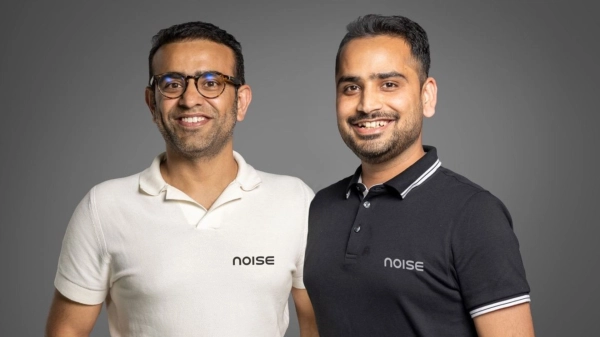RIL’s Strand Life Sciences Unveils New Prenatal Screening & Diagnostics Portfolio

These advanced tests developed by Strand Life Sciences are based on a genomic analysis pipeline specifically developed and validated on Indian samples and conditions.
Strand Life Sciences, a subsidiary of Reliance Industries and a global leader in genomic and bioinformatic solutions, has launched its pioneering prenatal screening and diagnostics portfolio.
The genomics giant introduced two groundbreaking portfolio technologies: CNSeq and MaatriSeq, designed specifically to meet the needs of the Indian community.
These technologies offer unmatched efficiency, cost-effectiveness, and accuracy, the company said in a statement.
These advanced tests developed by Strand Life Sciences are based on a genomic analysis pipeline specifically developed and validated on Indian samples and conditions.
Ramesh Hariharan, CEO & cofounder of Strand Life Sciences, highlighted the company's dedication to setting new standards in genetic diagnostics.
He stated, "Strand is at the forefront of advanced genomic solutions and continues to redefine standards in genetic diagnostics.”
According to him, Strand wants to contribute to the efforts of the Indian Government to reduce the burden of rare diseases in India.
Key Features of Prenatal Screening & Diagnostics Tech
As per Strand Life Sciences, CNSeq utilizes cutting-edge Next Generation Sequencing technology, marking a significant advancement in prenatal diagnostics.
It leverages proprietary software and delivers precision in identifying Copy Number Variations (CNVs). The company says this technology even surpasses traditional cytogenetic and molecular techniques.
On the other hand, MaatriSeq is the first Non-Invasive Prenatal Screening (NIPS) solution validated on the Illumina NovaSeq X Plus sequencing platform.
It provides a highly accurate and cost-effective option, expanding access to prenatal screening across India, the company claimed.
This technology demonstrates exceptional sensitivity and specificity in identifying fetal chromosomal abnormalities, outperforming existing techniques.
The Growing Need for Prenatal Diagnosis in India
The most common prenatal tests in India include the double marker test, which involves β-human chorionic gonadotropin (hCG) and pregnancy-associated plasma protein (PAPP-A) tests, and the triple and quadruple marker tests used in the second trimester.
These tests are biochemical hormone screening tests that help identify potential chromosomal abnormalities in the developing fetus.
Additionally, non-invasive prenatal screening methods, such as Cell-Free Fetal DNA Screening (NIPS/NIPT), have become increasingly popular in India due to their high success rate in detecting major chromosome abnormalities like down syndrome.
India, with the highest rate of Down Syndrome at 1 in 830 births, faces a significant need for improved prenatal diagnosis.
Traditional screening tests, while available, often yield lower detection rates and higher false positives. In contrast, NIPS offers superior accuracy, early detection, and safety advantages, particularly for high-risk individuals.
Prof Dr Narendra Malhotra, senior consultant obstetrician and gynecologist and past president of The Federation of Obstetric and Gynecological Societies of India (FOGSI), noted the importance of advancing prenatal genetic screening in India.
Reacting to the development Dr Malhotra said that MaatriSeq NIPS on a high throughput sequencing platform is a solution that combines superior quality and affordability, thus helping widespread implementation.
Currently, the service is only available upon prescription from any consultant duly registered with PCPNDT, to ensure compliance with regulatory standards and ethical guidelines, the company noted.
Stay tuned for more such updates on Digital Health News





















